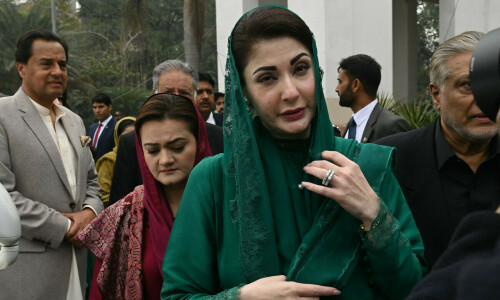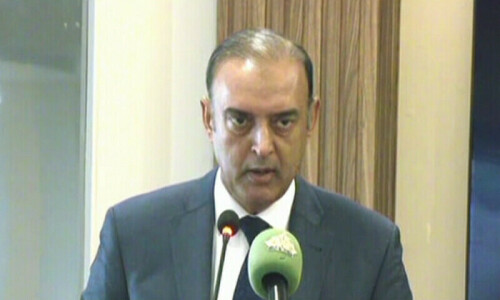ISLAMABAD, March 27: Higher Education Commission Chairman Dr Attaur Rehman has said that a reasonable amount would be granted to Quaid-i-Azam University (QAU) for research projects in near future.
“It will help transforming the university into an institution of international level,” he said while addressing the inaugural session of a two-day workshop on “Nano sciences and catalysis” at the university.
The HEC chairman lauded the efforts of National Centre for Physics (NCP) in the field of research and said, “we are proud of Quaid-i-Azam University as it has a distinctive feature of competent faculty, hard working professors and very conducive research environment.”
He said HEC has created a conducive environment for scientists and researches to come to their homeland and impart their knowledge among the potential scientists.
Dr Rehman said HEC was facilitating the students as it has introduced many facilities like E-books programme and video lectures facility.
Dr Hafeez Hoorani, Director Research, said NCP was set up to facilitate the researchers in field of Physics and centre is well equipped with up to date facilities and well trained human resources.
He said NCP was collaborating with international universities and industries to develop useful materials for industrial applications.
Institute of Nano Science and Catalysis has developed five patents in the fields of medicines, energy, environment and food processing and got them registered with US Patent and Trademark Office.
Meanwhile addressing a workshop on “Bio-ethics education: necessity not luxury” organised by OIC Standing Committee for Scientific and Technological Cooperation (COMSTECH), in collaboration with HEC, Dr Rehman said that the allocation for higher education had been increased to Rs18 billion from Rs800 million five years ago. Eighty per cent of this money is being spent for human resource development; training of scientist, researchers and educators which is the main focus of HR development efforts,” he said adding that the results of this investment in education and science and technology have started emerging as the trained professionals have started coming back to Pakistan.
The HEC chief said the country needed ‘quality minds’ and ‘committed professionals’ for advancement in the field of science and technology and this gigantic task could only be achieved “if resources were allocated for this purpose”.
He informed the gathering that Higher Education Commission had also started international lecturing programme through video conferencing. After USA, Pakistan is the first country where students have access to E-lectures and books, he added.
Dr Farhat Moazzam, from Centre of Bio-Medical Ethics and Culture of Sindh Institute of Urology and Transplantation, Karachi spoke on kidney trade in Pakistan and stressed on the need for strict implementation of laws.













































Dear visitor, the comments section is undergoing an overhaul and will return soon.